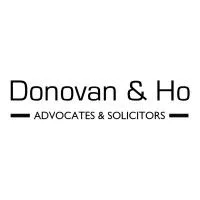If you are a business owner in Malaysia, it is important to understand which business expenditures are eligible for tax deductions. While some "obvious" expenses, such as raw material purchases and machinery repair costs are generally allowable deductions, not all business expenditures qualify.
Here are 5 key considerations to keep in mind regarding the deductibility of business expenses in Malaysia:
The expenditure must be to produce income
To qualify as a deductible expense, the expenditure must be "wholly and exclusively" incurred to produce income. This means that both the amount incurred and the motive/object behind the expenditure must be focused solely on generating revenue for the business. Consider the objectives and intentions behind the expenditure to ensure it aligns with the motive of income production.
Capital expenditure is not deductible
Capital expenditure is one which provide lasting benefits to the business. It typically involves long-term assets like buildings, plant, and machinery. There are different tests that can be used to ascertain whether an expenditure is capital in nature. For example, whether the expenditure brings into existence an asset/advantage which is of "enduring benefit" (eg: buying a factory machine that can be used for many years) or whether it is an expenditure incurred to start the business from which the income originates (eg: initial renovation to an office).
Capital expenditure cannot be claimed as a deductible business expense. However, the business may instead claim capital allowance at prescribed rates.
Expenses under section 39 of the Income Tax Act are not deductible
Section 39 of the Income Tax Act ("ITA") provides a list of expenses which are not allowed as deductible business expenses. This includes domestic or private expenses, employers' contribution to any unapproved pension, provident or savings schemes, non-approved donations, and entertainment to potential customers. Some expenses are only 50% deductible – for example, certain entertainment expenses.
The expenditure must be incurred in the accounting year
For an expenditure to qualify as a business deduction, it must have been incurred during the relevant accounting year. Expenses or losses from previous accounting periods or anticipated expenses or losses in future years cannot be considered deductions in the current year if they have not yet materialized. It was also held by the Court of Appeal that the sum which the taxpayer was under an obligation to pay for that accounting year should be allowed as a deduction under Section 33(1) of the ITA, even though the amount was not incurred and received by the benefiting party.
Challenging the tax assessment
If you disagree with the assessment made by the tax authorities regarding the deductibility of a business expenditure, you have the right to challenge it. You can initiate an appeal by submitting Form Q to the Inland Revenue Board. This will be referred to the Special Commissioner of Income Tax (SCIT), who will hear the case as a tax appeal. Dissatisfied parties can further appeal the decision to the High Court.
Businesses do not operate in a vacuum. Determining the deductibility of business expenses is not always straightforward, as each expenditure involves distinct factors and mechanisms that must be assessed individually.
Originally published Dec 8, 2023
The content of this article is intended to provide a general guide to the subject matter. Specialist advice should be sought about your specific circumstances.

